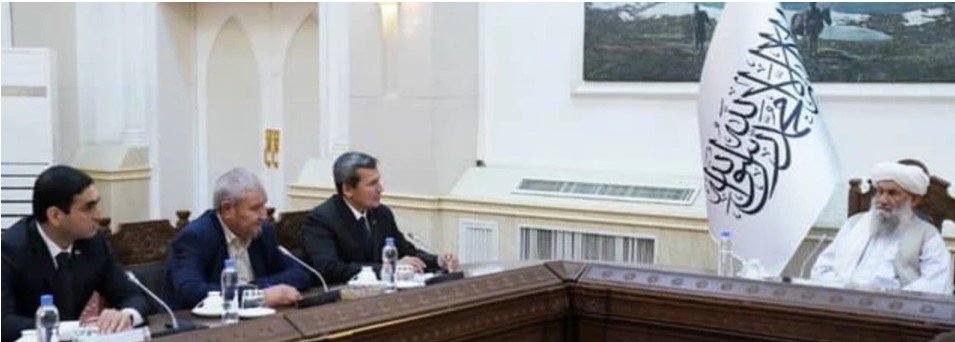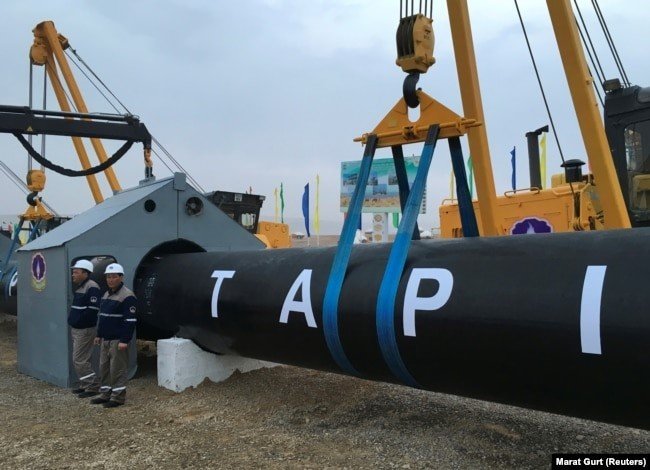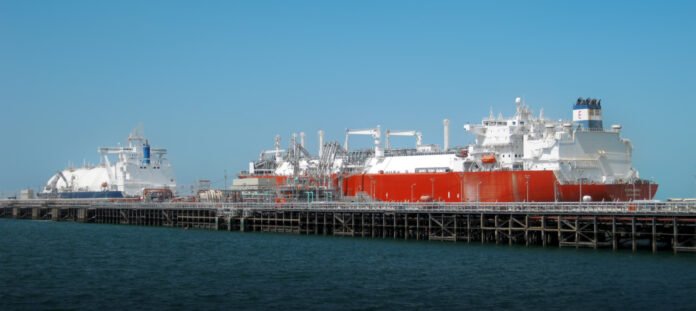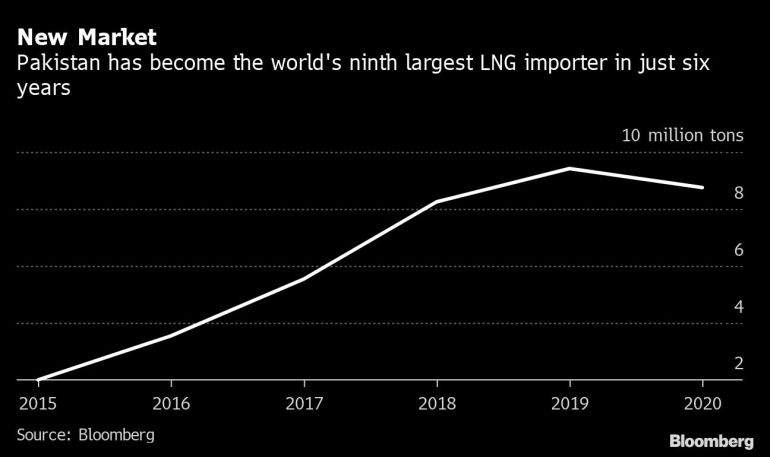Turkmenistan discusses with the Taliban the TAPI project
Herald Report
Islamabad, Nov 4: Prime Minister Imran Khan in his televised address on Thursday hinted that Pakistan may face a severe gas shortage in winter, reinforcing the importance of the revival of the Turkmenistan-Afghanistan-Pakistan-India (TAPI).
Against this backdrop, a delegation led by Turkmen Foreign Minister Rashid Meredov visited Kabul on October 30-31 to discuss with the Taliban’s interim government the gas pipeline from Turkmenistan through Afghanistan and Pakistan to India (TAPI), said media reports.
Meredov met with Taliban acting Foreign Minister Amir Khan Muttaqi, acting Deputy Prime Minister Abdul Salam Hanafi, and acting Defence Minister Mawlawi Mohammad Yaqoob, the son of deceased Taliban leader Mullah Omar, said a report in Radio Free Europe/Radio Liberty website page.

“Since coming to power 15 years ago, Turkmen President Gurbanguly Berdymukhammedov has been fixated on completing TAPI,” wrote Bruce Pannier on RFE/RL website.
The Central Asian country holds the fourth-largest proven reserves of natural gas on the planet.
Atop the agenda of their meetings was — as Muttaqi said of his meeting with Meredov — “Important issues such as TAPI, railroads, and electricity.”
Yaqoob tweeted: “I am directly responsible for overseeing the security of the TAPI project…[and] we will not hesitate to make any sacrifices for the implementation of this national project.”
TAPI was an important issue when Turkmen officials met with former Afghan President Ashraf Ghani’s government as well as that of his predecessor, Hamid Karzai, and with representatives of the Taliban when it ruled the country in the late 1990s.
The Afghan government has been promising since 2010 to create a special force of some 7,000 troops to guard the TAPI pipeline that aims to carry some 33 billion cubic meters (bcm) of gas from fields in Turkmenistan more than 1,800 kilometres through Afghanistan to Pakistan and India.
Pakistan and India would each receive 14bcm and Afghanistan would receive 5bcm, which would be a huge increase for Afghanistan compared to the country’s recent annual use of less than 200 million cubic meters.
Additionally, Afghanistan could earn some $500 million in transit fees annually, though Meredov said in November 2017 that Afghanistan would earn some $1 billion from transit fees.
When the price of gas briefly shot to more than $1,000 per 1,000 cubic meters in October this year, officials in Turkmenistan must have broken out in a sweat, comments Pannier.
Twenty-five years ago, Turkmen officials were trying to get their only gas customer at that time — Russia — to pay $40 per 1,000 cubic meters instead of $32.
But even if the security situation in Afghanistan becomes more stable under the Taliban, there are still significant problems with financing the approximately 775-km stretch of TAPI through Afghanistan.

The estimated cost of the total project is some $10 billion, though that estimate is a decade old.
Pakistan has sought to renegotiate the price of Turkmen gas from TAPI several times in recent years and Turkmenistan reportedly agreed in 2020 to consider lowering prices.
India might now be out of the project entirely as New Delhi’s relations with Islamabad have never been good and are even worse with the Taliban.

Pakistan’s nightmare
Pakistan’s gas utilities have already announced a gas load management plan to deal with the crisis at the beginning of winter suspending supply to CNG stations, some industrial units and captive power across their franchised areas including, Sindh, Balochistan, Punjab, and Khyber Pakhtunkhwa (KP).
According to media reports Pakistan’s state-owned gas companies are facing shortages of 275 million cubic feet per day (MMCFD) attributing it to a delay in the arrival of imported liquefied natural gas (LNG) as it has been receiving only 780MMCFD against a total demand of 1050 MMCFD.
The country imports 12LNG cargoes a month to meet demands. However, the PTI government has this time imported 10 LNG cargoes, aggravating the shortage.

Pakistan only started importing liquefied natural gas six years ago, but its growing dependence on super-chilled fuel is starting to turn into a nightmare.
The surge in global gas prices due to shortages in Europe has pushed Asian LNG to records for the time of year. That’s forced Pakistan to pay the most ever for spot shipments to top up supply under long-term contracts, or even forgo them altogether.
The shortfall means the nation will “definitely” suffer power outages over the winter, Iqbal Z. Ahmed, the chairman of Pakistan GasPort, which owns and operates one of the nation’s import terminals, said in an interview with Aljazeera/Bloomberg.

Over the last decade, emerging nations including Pakistan built LNG import strategies on the premise that the fuel would be abundant and cheap for the foreseeable future. That came to a halt this year as Asian LNG rates soared.
Pakistan does get more than half its LNG under long-term contracts, which provides some protection against the volatile spot market. Furthermore, Qatar has agreed to increase supply under those term deals, according to traders who asked not to be identified as the talks aren’t public.
But the nation still requires spot shipments through the winter months, and it is unclear if it will be able to afford those. The high cost of spot LNG has sparked a political controversy, with opposition politicians demanding an inquiry into purchases by the state-owned importer.
The high costs may also push the government to encourage consumers to switch to electricity where possible to save gas for industry and heating needs. They also threaten the nation’s switch to gas as a cleaner-burning transport fuel.

The High Asia Herald is a member of High Asia Media Group — a window to High Asia and Central Asia
